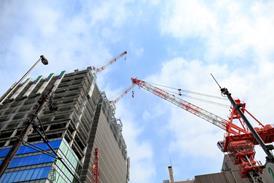In echoes of an Orwellian landscape, companies are keeping 24/7 tabs on their workers via tracking devices in their vehicles – and reaping the benefits.
Imagine a world where you can pinpoint the exact location of your mobile workforce at any time of day, where you pay staff only for the hours they work, and where your vehicle fleet is safer from theft, insurance premiums are lower and fuel costs are kept to a minimum.
It’s a world promised by providers of so-called telematics real-time vehicle tracking systems and, unsurprisingly, companies are moving fast to adopt the technology.
But hold on for a second. What about the rights of employees, who will no doubt resent this Big Brother-style intrusion into their daily lives? Aside from the commercial considerations, there are many legal, moral and ethical issues at stake.
Civil engineering contractor Westshield has been monitoring its fleet using telematics for the past four years. CM put the issues to business development manager Gerard Waldron and vehicle operations manager John Caulfield.
How big is your fleet and which vehicles are monitored?
We have 81 vehicles in total, ranging from standard company cars to Citroën Berlingos, Citroën Relay Enterprise vans, Ford Iveco vans, 7.5-tonne wagons, 32-tonne wagons and articulated vehicles with low loader trailers. We started out trialling the system on a handful of vehicles and now 57 are monitored.
Why did you decide to start using telematics?
From September to the end of February adverse weather conditions and reduced daylight mean productivity decreases. Previously, some of our employees were submitting timesheets for 45 or 50 hours a week when they weren’t actually on site that long. Telematics is a means of verifying exactly how long workers are on site.
The system is also able to estimate how much vehicles are costing in terms of fuel use, how many miles they’re doing, which workers are ‘doing foreigners’ at the weekend or outside work, which has tax implications and we’re not willing to foot the bill for excessive use outside work hours. It’s our fuel, our vehicle and sometimes our materials at stake. We’re keeping an eagle eye on things now.
What cost savings have resulted?
Within the first year the system paid for itself. One of our vehicles, a Ford Transit, was stolen from outside a shop in the early hours of the morning. We got into the office at 6am, logged on and followed the trace of the van to its end destination. We went and retrieved the vehicle in a car and then took it to the local police. The recovery of that vehicle effectively paid for the telematics system for a year and encouraged us to introduce it into more of our vehicles.
How have your drivers reacted?
When we first altered the employees’ time sheets according to the trackers there was uproar. Some people made excuses and tried to dispute the evidence, but the proof was in the pudding.
Over the years some workers have managed to locate the telematics trackers and rip them out, but Masternaut can detect when a signal’s down and whether the device has been tampered with. If that’s the case then the site manager can check the vehicle to see what’s up. If it has been tampered with this could lead to a driver reprimand, other disciplinary procedures or a deduction of wages for the cost of getting an engineer out to reconnect the system.
One solution we’ve adopted is to install a decoy tracking device. If these get ripped out or tampered with the driver thinks he’s gotten away with it, but in fact another real working device is still concealed elsewhere in the van.
Don’t you think workers might see this as a lack of trust from the management?
No. The good ones say they either aren’t bothered or that it’s a good idea. It’s the bad ones that object to it.
What’s your policy on drivers using vehicles outside work hours?
We try to be fair with the nominated van drivers, we don’t mind them using the vehicles to nip down to the shops, but we don’t want them taking advantage.
Are drivers aware that they are being monitored?
All the drivers know the trackers are installed and that we’re recording where they’re going and how fast. Unfortunately that doesn’t stop a small minority of drivers from breaking the rules.
How does installation of a tracker device impact on your operations?
It takes a couple of hours to install per vehicle, so you can only complete a certain number of installations a day. Some sites are remote, and it can be difficult getting Masternaut’s engineers there fast to install the trackers.
What labour is required to run the system?
We spend about an hour a day checking the reports and slightly longer on a Monday printing off the full week’s results for each tracking device. That enables us to calculate hours worked, and based on that, wages.
What other benefits have you experienced?
Our insurance costs and renewals reduced after we told our broker we had a system that’s enabled us to recover a vehicle and that it could do the same in future.
We’ve saved a great deal of money on wages as on the whole there was a significant difference between the hours the lads had said they’d been working and what the system showed they’d actually been working: when they arrived on site and left at the end of the day. Over, say, 20 sites, you could be talking about a £4,000-£10,000 a week saving.
We’ve been able to identify people speeding. If a member of the public reports reckless driving – our phone number is on the van – we can check the location of the vehicle, the driver and the speed of the vehicle at that time and discipline offending drivers.
What about fuel savings?
We’ve saved maybe 30%. Each vehicle has a Shell fuel card, so we can see how much fuel is being bought. Masternaut tells us how many miles the vehicles are doing and we can check whether the figures tally.
How much did it cost?
We can’t reveal the initial outlay, but post-installation the use of the website is free and we pay [system provider] Masternaut to rent the tracking devices.
Have you had any problems with the system?
Nothing serious. Minor tracking glitches have occurred, but that’s more down to the satellite signal than the system. The tracking devices rarely go wrong.
How could the system be improved?
We’re on the basic package. In the future, as the company grows, we may upgrade to a more advanced configuration.
Why did you select Masternaut over other providers?
We brought in two or three systems and compared their respective features and costs. Masternaut seemed to suit our way of working best. The main factor was being able to log on to a live website and track vehicle location, speed, the name of the driver, previous vehicle movements and so on. Price was also a big factor because we initially wanted to install it in over 40-odd vehicles.
Do you tell clients you have a telematics system and if so does this give you a competitive advantage?
We don’t tell clients we have the system and we don’t think there would be any competitive advantage in doing so.
Do you use the system to reward drivers for meeting deadlines?
No. That’s what they’re paid to do.
How do you discipline drivers if they abuse the system?
It depends on the severity of the crime. The worst case was a guy ‘doing foreigners’ within work time and stealing materials from site.
We were able to trace back his movements through the tracker, then piece this evidence together with reports from the public saying ‘your van was outside my house’. We found him guilty and he was dismissed. cm
‘It highlights trust issues within the company’
In his dystopian novel 1984, George Orwell predicted the detrimental effects invasive surveillance can have on personal privacy and to some it might seem that his vision is coming true through hi-tech systems like closed-circuit television and telematics.
Although telematics can help contractors improve security, save money and time, it can also anger employees who are unwilling to have their movements constantly monitored and recorded.
‘Telematics and real-time monitoring cut across the bones of the conventional employment relationship,’ a spokesman for the Transport and General Workers Union (TGWU) told CM. ‘Previously, when a driver left the yard he had his own discretion and took responsibility for carrying out his job, but now real-time telematics systems make him increasingly subservient to his employer.
‘Monitoring to ensure vehicle security and employee timekeeping are legitimate functions, but our worry is that telematics changes the nature of the job and will make it less attractive to potential employees - and that’s in an industry which already suffers from lack of skilled staff.’
A spokesman for UCATT voiced similar concerns: ‘The technology poses real problems, perhaps leading to victimisation with certain individuals’ movements unfairly monitored,’ he said.
‘It also highlights trust issues within the companies that use the technology. If you feel the need to spy on your workforce that suggests you have deeper management problems, which could lead to employees spending time trying to find ways round the system, rather than doing their jobs.’
Source
Construction Manager





















No comments yet